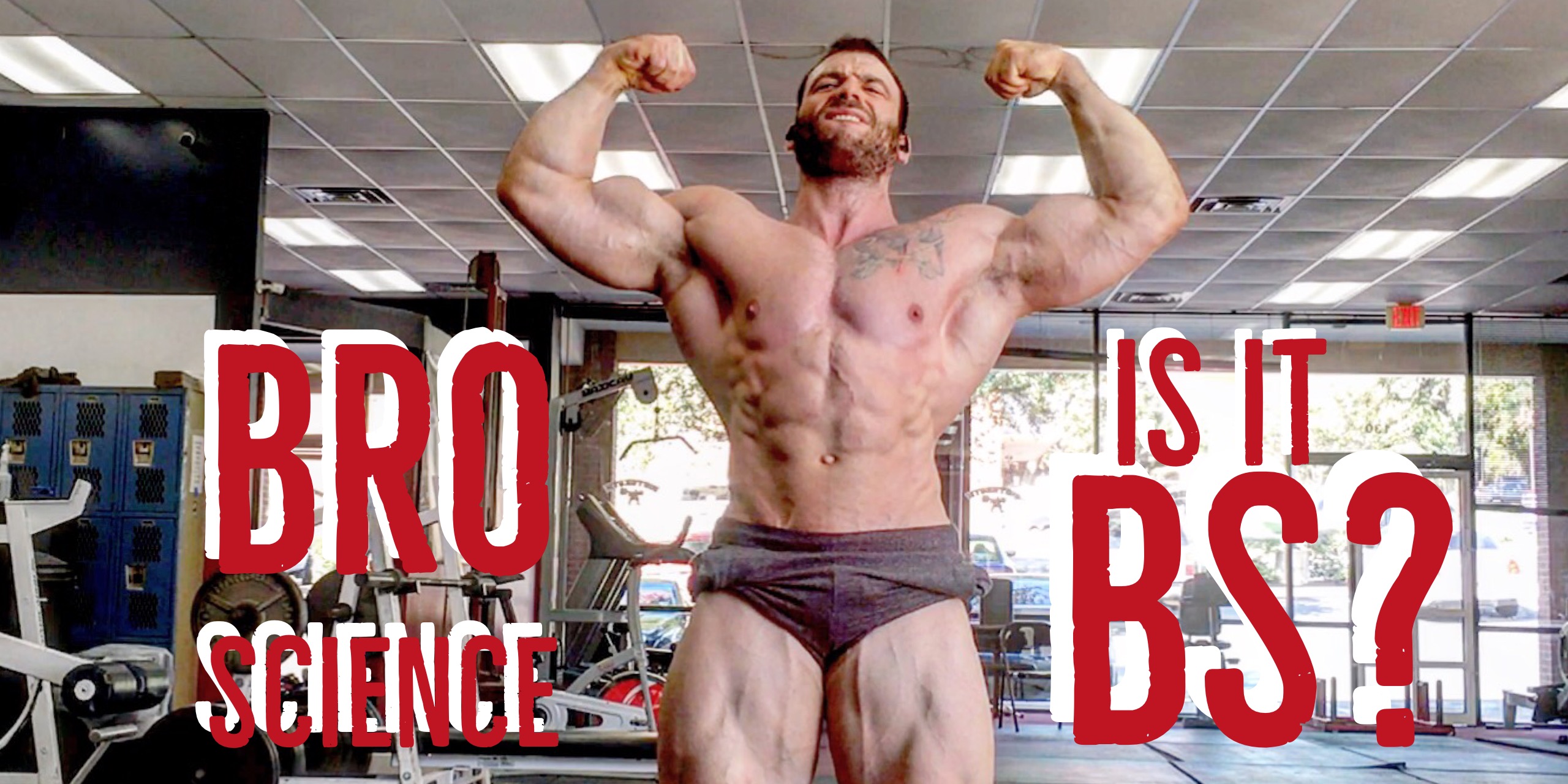
Lately I’ve tried to be a little more active on social media, both with my YouTube videos and on Reddit. I’ve noticed that many lifters seem to be really interested in the scientific bases for programming, and that’s awesome. There’s a lot we can learn from modern research about how the body responds to training stimulus, and there are many awesome evidence-based training protocols available today that weren’t available to lifters even just a decade ago.
It’s not so awesome when those same lifters grow so attached to training theory that they disregard or even dispute alternative methods. There’s a reason the term “broscience” calls to mind images of a jacked guy in a stringer tee two sizes too small going HAM on lateral raises while admiring his gains in the mirror (and it’s not just because Dom pointed out how fucked up that is). Obviously, you shouldn’t be that guy. But you also shouldn’t be the guy who writes off otherwise reasonable advice just because there’s no evidence supporting it.
Here’s an example: most studies show that weight loss (or gain) comes down to calories in versus calories out. And because of that, you’ll find guys who insist that they can eat whatever, whenever they want -- as long as it fits their macros -- and have a diet that’s just as effective as a more rigorous one. Have you ever seen a top-level bodybuilder who preps for a show using IIFYM? Me neither. There’s a reason for that, and there’s a reason that Ed Coan’s records outshine those set today (even though he lacked access to more “proven” training methods like undulating periodization). There’s a reason compression flossing seems to work to heal many injuries, even though no one can offer a definitive explanation for why it works.
Want the simple explanation? We can’t explain everything about how the human body works, so trying to base your training and diet solely around scientifically-based methods is likely to be an exercise in frustration.
There’s a better explanation, though, and it deals with the difference between tacit and formal knowledge. Formal knowledge is, basically, science: theories that have some evidence behind them, have been written down, been reviewed, and are easily accessible through textbooks, or journals, or online databases.
Tacit knowledge isn’t quite the opposite of formal knowledge. In fact, tacit knowledge is usually supported by lots of evidence -- it’s just not evidence gathered in a controlled experiment. Tacit knowledge usually gets reviewed, too, by top experts -- just not in an academic setting. That’s because tacit knowledge can’t really be written down or even explained, even by the experts. Instead, it’s passed on through observation and practice.
Ever watched someone squat and realize that there’s just a little bit off about their technique, and even though you can’t quite put your finger on it, you know that if they just pushed their knees forward a tad more it would look much better? That’s tacit knowledge. In some fields -- usually the “hard” sciences -- tacit knowledge isn’t a huge deal. Sorry to break it to you, but lifting isn’t a hard science. There’s just too many intangibles about how we feel or how we behave or how we move for that to ever be the case. When you add the fact that, compared to biology or chemistry or physics, kinesiology is an extraordinary young field of research, the idea that you can base your training and diet around formal knowledge becomes laughable.
Now, keep in mind that tacit knowledge can be bastardized just as easily as formal knowledge (maybe more easily). I’m not saying to take everything you hear from a top-level athlete at face value. In fact, that’s a terrible, terrible, terrible idea.
I am saying that if you spend hours, even days, in search of the scientific evidence that will help you create the perfect program; or if you blindly cling to the evidence that you do find; or if you ignore arguments only for a lack of formal evidence: you need to stop. You’re never going to find a formal explanation for everything. Instead, find someone who’s open to a broad range of ideas and methods, who has experience, and who is willing to share their tacit knowledge, and learn everything you can from him. Then find someone else, and learn from her. You’re never going to know everything, so stop trying to be perfect, and start trying to be great.









2 Comments